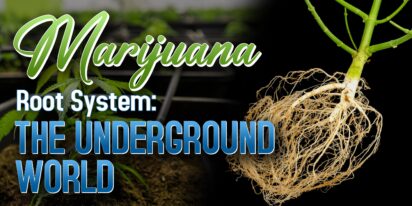
Are You 18 Or Over?
YesOr
No By clicking yes, you certify that you are over 18. By using this website, you agree to our legal disclaimer.605+ Cannabis Strains over 20 Breeders worldwide.
Table of Contents

Table of Contents
Cannabis assisted therapy harnesses the therapeutic properties of cannabis to alleviate symptoms associated with a range of medical conditions. From chronic pain and anxiety to PTSD and insomnia, cannabis has shown promise in providing relief where traditional treatments fall short. By leveraging the synergistic interaction between cannabinoids and the body’s endocannabinoid system, this form of therapy offers a holistic approach to wellness.
Cannabis-assisted therapy doesn’t just focus on fixing one problem at a time, like many regular medicines do. Instead, it looks at the whole body and tries to fix any imbalances that might be there. This means that cannabis doesn’t just help with one symptom—it helps with lots of things all at once. This way of thinking fits in with integrative medicine, which says that everything in our body is connected, including our mind and spirit.
People dealing with long-term problems like arthritis, multiple sclerosis, or fibromyalgia can find hope in cannabis-assisted therapy. Cannabis has properties that reduce inflammation and relieve pain, which can make it easier to move around and feel better. This can really improve the lives of people who have these tough conditions.
Cannabis-assisted therapy stands out because it can be customized to fit each person’s needs. Unlike regular medicines that are made for everyone, cannabis therapy can be adjusted to match what each patient needs and how much they can handle. Whether someone prefers to take it as drops under the tongue, breathe it in as vapor, or put it on their skin as cream, there are different options available to suit their likes and what works best for them.
Besides helping with physical problems, cannabis-assisted therapy has a lot of potential for mental health issues too. Things like anxiety,
depression, and PTSD can really affect how someone feels every day. But the treatments usually used for these problems often have bad side effects. Cannabis can help without causing as many problems because it can calm nerves and stabilize moods. This makes it a kinder option for people who are struggling with mental illness and looking for some relief.
Cannabis-assisted therapy brings hope to people dealing with all sorts of medical issues. Whether it’s chronic pain, anxiety, PTSD, or more, cannabis provides a natural way to heal that fits with how our bodies naturally work to find balance and get better. As we learn more about this old plant, we’re moving towards a future where cannabis-assisted therapy isn’t just okay—it’s seen as a really important part of how we treat illnesses nowadays.
Q: Is cannabis-assisted therapy legal?
A: Yes, cannabis-assisted therapy is legal in many regions where medical cannabis has been legalized. However, laws vary, so it’s essential to consult local regulations.
Q: What conditions can cannabis-assisted therapy treat?
A: Cannabis-assisted therapy has shown efficacy in treating a wide range of conditions, including chronic pain, anxiety, PTSD, insomnia, and neurological disorders.
Q: Are there any side effects associated with cannabis-assisted therapy?
A: While generally well-tolerated, cannabis-assisted therapy may cause side effects such as dry mouth, dizziness, and increased appetite. It’s essential to consult a healthcare professional before initiating treatment.
Q: How does cannabis-assisted therapy differ from recreational cannabis use?
A: Cannabis-assisted therapy involves the controlled use of cannabis under medical supervision to address specific medical conditions. Recreational use, on the other hand, is purely for leisure or enjoyment.
Q: Can cannabis-assisted therapy replace traditional medications?
A: While cannabis-assisted therapy shows promise as an alternative or adjunct to traditional medications, it’s essential to consult with a healthcare provider to determine the most appropriate treatment approach.
Q: Is cannabis-assisted therapy suitable for everyone?
A: Cannabis assisted therapy may not be suitable for everyone, particularly individuals with certain underlying health conditions or those at risk of substance abuse. It’s crucial to undergo a thorough evaluation before embarking on this form of treatment.

[ez-toc] In indoor gardening, maintaining an optimal temperature within your grow tent is crucial for the health and productivity of your plant

[ez-toc] Welcome to the delightful world of cannafudge crafting, where sweetness meets sophistication, and cannabis infusion adds a unique twis

[ez-toc] You’ve finished trimming your weed, but what about those leftover stems? Don’t throw them away! These seemingly useless bits can a

Feeling high can be an exhilarating experience, but it's essential to make the most of it by engaging in activities that enhance the sensation a

[ez-toc] Starting with planting cannabis seeds might seem simple, but how deep should cannabis seeds be planted for them to grow well. In this

[ez-toc] In the realm of cultivating cannabis, maximizing growth during the flowering stage is a top priority for growers. While various method

[ez-toc] Nutrient burn is a common issue among plant enthusiasts, often resulting from over-fertilization or improper nutrient application. It

[ez-toc] Welcome to our complete guide to dealing with harmful pathogenic mold in cannabis. For those who grow cannabis, preventing mold is vit

In recent years, there has been speculation about “did Shakespeare smoke weed?” This idea originates from a study by South African anthropol

[ez-toc] Welcome to the hidden world beneath the soil – the inside of the marijuana root system. While the vibrant leaves and resinous flower

Are You 18 Or Over?
YesOr
No By clicking yes, you certify that you are over 18. By using this website, you agree to our legal disclaimer.